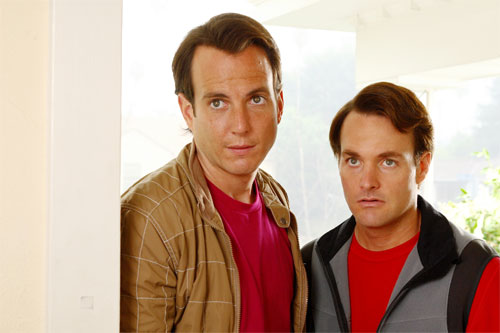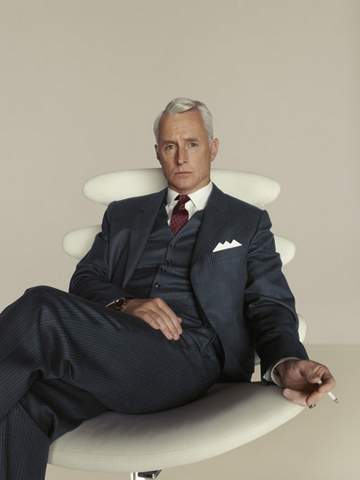In addition to being a modern comedy giant, Bob Odenkirk seems like a really nice guy. He’s like the Dave Grohl of comedy, minus the backlash. The movies have not treated him all that well, however, particularly in the case of the Mr. Show-derived Run Ronnie Run, which became a heavily-compromised affair. Still, Odenkirk has to date managed to produce three features as a director, and they remain largely under the radar as far as mainstream audiences are concerned. With his star having risen via Breaking Bad, and now Better Call Saul, Odenkirk seems poised for greater popular recognition. Here’s hoping the extra clout can him back behind the camera making features because, as good as the first three are, it feels like the best is still ahead of him.
Melvin Goes to Dinner (2003)
Mr. Show fans could not have expected Odenkirk’s debut feature to be anything like this talky and very dramatic adaptation of star Michael Blieden’s play. Blieden is Melvin, a troubled former medical student who’s in an obvious existential funk after dropping out. An old friend misdials Melvin’s number, invites him out to a dinner party anyway, and Melvin reluctantly decides it will do him good. The resulting conversation is the main focus and leads to revelations that are anything but contrived; these aren’t especially interesting people, but they have a lot of insightful things to say that don’t sound like movie dialogue. Melvin’s profound isolation and depression are subtly but powerfully conveyed early on and the film ends in a nicely ambiguous place, albeit one where Melvin appears to be on the cusp of great change.
 Let’s Go to Prison (2006)
Let’s Go to Prison (2006)
This is, if not the best, at least the best-realized of the three. Odenkirk shows a strong visual sensibility in the form of lots of zooms and an overt nod to Taxi Driver (you’ll know it when you see it) further suggests he had ‘70s cinema in mind. That’s fitting given the biting social commentary contained in the script by Reno 911 alumni Robert Ben Garant, Thomas Lennon and Michael Patrick Jann, which uses dark comedy to ultimately argue prison is a corrupt, dehumanizing way to deal with crime that only makes criminals worse than when they went in. Dax Shepherd is John Lyshitski, a convict just released from his third stretch seeking revenge on the judge who paved his way into the prison system for a relatively minor offence. Time has beat John to the punch, however, so he turns his rage on the judge’s spoiled son (Will Arnett). The pair are locked up together and things do indeed get much worse; first for them then, in the end, for society at large. The laughs are there to be sure and what’s truly remarkable about Let’s Go to Prison is the way they don’t dilute the sense of danger inherent in the setting, best personified by the great Michael Shannon as the terrifying leader of the prison’s white supremacist element.
The Brothers Solomon (2007)
Watching this back to back with Let’s Go to Prison may give you whiplash. The Brothers Solomon is a surreal (no surprise given the script was the work of co-star and SNL alum Will Forte) but ultimately very sweet and innocent comedy about family. Forte and Will Arnett are the eponymous siblings who, despite suffering from a distinct lack of proper socialization (they were raised in the Arctic and spent summers in the Antarctic), set out to produce a grandchild as a means of reviving their comatose father (Six Million Dollar Man Lee Majors). There’s some wonderful discomfort comedy in the early going here (particularly when Forte’s Dean Solomon kisses a date’s father square on the lips) but once the boys find a willing surrogate in Kristen Wiig’s Janine, it settles into a more mainstream and predictable rhythm and wraps up in the most saccharine manner possible. Still, The Brothers Solomon hits hard when it does hit and is a thoroughly entertaining comedy that, it its own weird way, is a wonderful celebration of non-traditional parenting.





